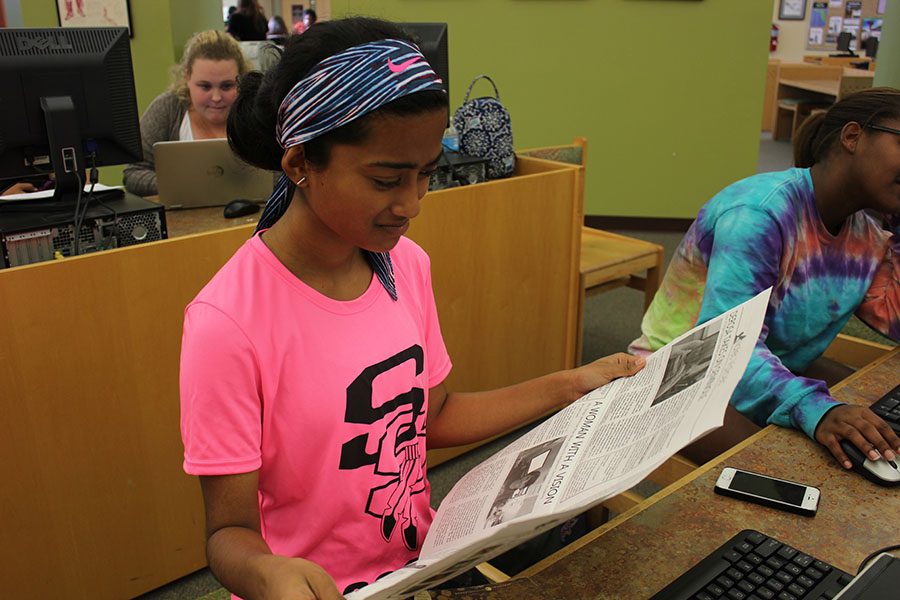FAKE NEWS IMPACTS VIEWS OF MAINSTREAM MEDIA
Fake news affects the way citizens perceive mainstream media.
January 12, 2017
During the mid-twentieth century, the news media was one of the most trusted ways to gain information about current events. However, the view of the media has changed in recent years. According to a study conducted by a global performance-management consulting company, 32 percent of Americans trust and have confidence in mass media, an 8 percent drop from 2015. This is primarily due to news satire and clear bias especially during the presidential election.
Satirical news, also known as fake news, is an imitation of works produced by large mass news media sites and presented as if it’s mainstream news. These types of stories are posted on fake news sites, like The Onion, and social media sites, such as Twitter and Facebook. News is typically spread because it confirms people’s existing views, and satirical news is often strongly biased.
Junior Sania Shaukat said, “I think satirical news is confused with real news often because people want to believe what they see on the internet. People tend to just read headlines when they are reading news and satirical news is catchy and grabs the attention of the readers.”
Due to the presidential election, fake news stories regarding both candidates flooded social media. One example of satirical news is a claim regarding President-elect Donald Trump. In 1998 during an interview with People Magazine, Trump allegedly stated, “If I were to run, I’d run as a Republican. They’re the dumbest group of voters in the country. They believe anything on Fox News. I could lie and they’d still eat it up. I bet my numbers would be terrific.” Images with this quote were spread across social media platforms to spread a negative image of Trump during the election. However, on People Magazine’s online content archive, there is no evidence supporting the claim to prove that he ever said that.
Senior Jazzalyn Velez said, “Personally, I feel that fake news often leads people to lose faith in the news because they can never be sure what is true and what is a hoax. I also believe it desensitizes people to things like death, financial crises, and human suffering in general.”
Politicians and celebrities stating opinions as if they are facts and vice versa, also contributes to the lack of trust between American citizens and mainstream media. This was a running theme during the 2016 Republican National Convention. Speaker of the House Paul Ryan stated, “The whole economy feels stuck.” However, the economy is solely based on numbers and money, not emotions, and has increased by nearly 15% since 2008.
Junior Adishi Ranjan said, “I think the media in itself is already biased so introducing fake news can really distort people’s perspective on important political, economic, and social matters. Drastic distortion of events and/or statistics can make people feel a certain way and induce feelings of hatred towards a certain group of people.”
One of the major ramifications of mistrusting the media is that it’s one of the factors that leads to a police state. Under Italian dictator Benito Mussolini the government instated censorship of the media, including prohibiting or controlling what rival political parties published. His followers, Black Shirts, attacked striking workers and destroyed the offices of socialist newspapers. Trump has repeatedly referred to the media as deceitful and dishonest, which plants the seeds of distrust. He has also promised “open up” federal libel laws to make it easier to sue news outlets.
Attacking mainstream media, the source of a majority of American citizens’ information, has negative consequences, including distrusting the news and spreading fake information. This emphasizes the importance of fact checking news stories to look for biases and to ensure one doesn’t spread false information.



















